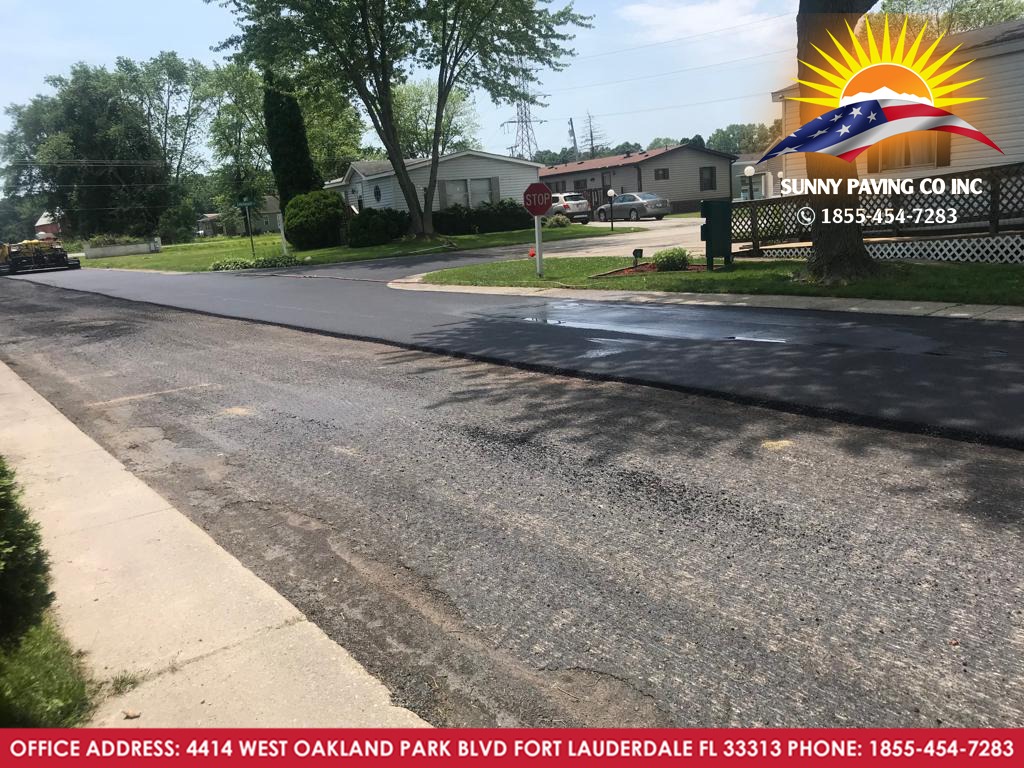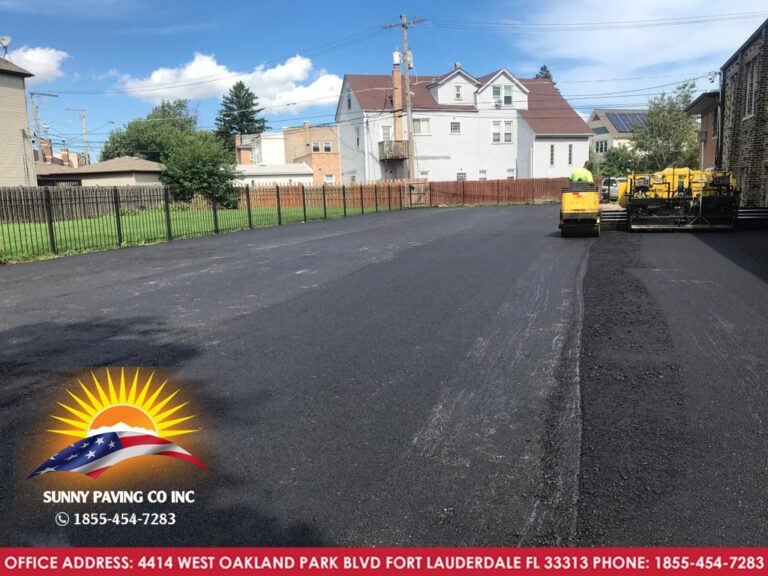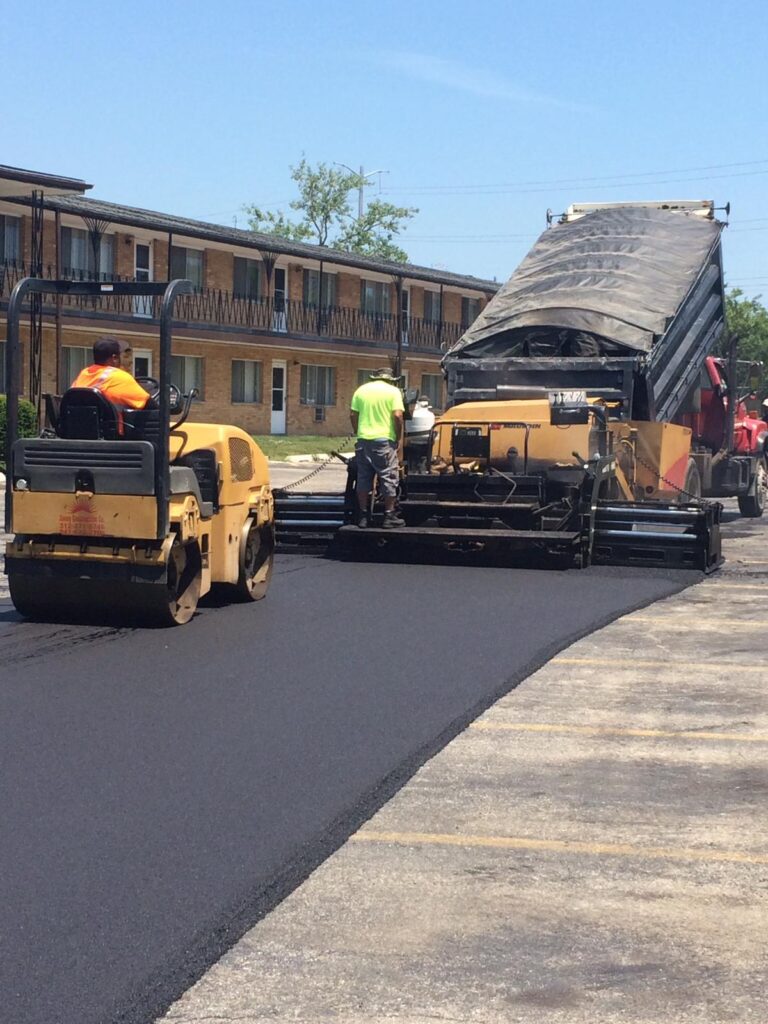WHAT’S THE DIFFERENCE BETWEEN ASPHALT PAVING & SEALCOATING?
WHAT’S THE DIFFERENCE BETWEEN ASPHALT PAVING & SEALCOATING?
A recently paved driveway’s smooth, black texture is wonderful for curb appeal and always creates a terrific first impression. Asphalt pavement, like everything else, deteriorates with time as a result of vehicle traffic and harsh weather conditions including intense sun, cold temperatures, ice, and snow. Other dangerous environmental variables include road salt, engine oil, and gasoline.
Your asphalt pavement will need to be repaired or replaced at some point. That’s when most homeowners start looking for paving services such as asphalt paving or sealcoating.
So, what’s the difference between asphalt paving and sealcoating, and how can you know which is best for your driveway? In today’s post, we’ll go over the differences and provide you some pointers to help you pick.
WHAT IS ASPHALT PAVING?
Asphalt paving is a general term used to describe the application of hot asphalt to a driveway or parking lot surface. The term can be used to describe the process of creating a new driveway or a method to repair existing asphalt pavement.
Asphalt paving is often recommended to repair asphalt surfaces with major cracks and potholes. Services can range from simple overlays to complete resurfacing.
While a simple overlay adds a thin layer of hot asphalt to existing layers, complete resurfacing involves removing and replacing the old asphalt.
What is the price of asphalt paving?
Asphalt paving costs vary depending on the size of the paved area and the services that are provided. Asphalt paving might cost up to ten times as much as a standard sealcoating job. Even so, it’s frequently required for older or severely damaged driveways.
Asphalt driveways that are properly built and maintained can last 15 to 20 years.
How long should I wait to drive on the new surface?
A newly paved asphalt surface can take more than 30 days to fully cure, depending on the weather. However, you should be able to drive on the new surface within 3 days. When driving on new surfaces, you should avoid turning the steering wheel when the car is not in motion to prevent scuff marks.
When should I consider asphalt paving?
Asphalt paving is generally recommended to repair or resurface driveways that are at or near the end of their service life (typically 15 to 20 years). Asphalt resurfacing is also recommended to correct serious issues such as ponding water, deep cracks, or crumbling edges.
WHAT IS SEALCOATING?
The application of a specifically prepared liquid coating on asphalt pavement is known as sealcoating. The liquid hardens as it dries, protecting the pavement against water, UV damage, and chemicals that can harm asphalt surfaces over time. Sealcoating, which is typically created from refined tar or petroleum compounds, lowers friction and creates a smoother driving or parking surface.
How much does sealcoating cost?
The cost of sealcoating varies depending on the size of your driveway. When prep work is completed properly, sealcoating can make your driveway look brand new again for a fraction of the cost of asphalt paving and resurfacing.
How long does sealcoating last?
An application of sealcoating (typically 2 full coats) should last about 3 years if your asphalt pavement is in good shape. Older asphalt driveways may require annual sealcoating to maintain their protection and appearance.
How long should I wait to drive on my sealcoated driveway?
You should not drive on a newly sealcoated driveway for 24 to 48 hours after application. Drying time varies depending on relative humidity, temperature, and sun exposure.
When should I consider sealcoating my driveway?
Regular sealcoating is recommended for all asphalt driveways that are at least 6 months old. Sealcoating can significantly extend your driveway’s lifespan by slowing the normal degradation of the asphalt that results from freeze-thaw cycles, road salt, oil, gasoline, and sun exposure.
While the terms asphalt paving and sealcoating are often confused, each of these services has different purposes. Sealcoating can repair very minor cracks or defects, though it is typically used to maintain and protect asphalt surfaces. Asphalt paving is useful to repair or replace damaged or aging asphalt driveways.









